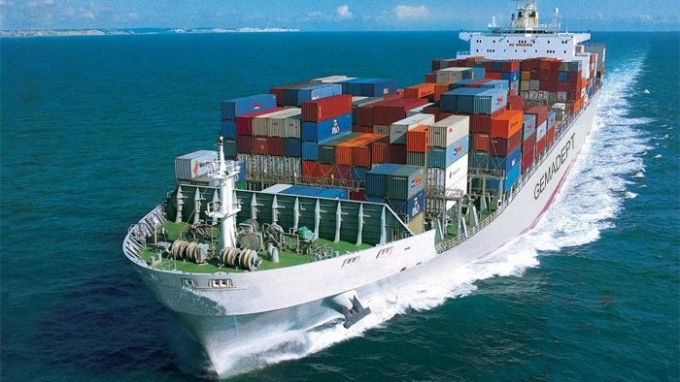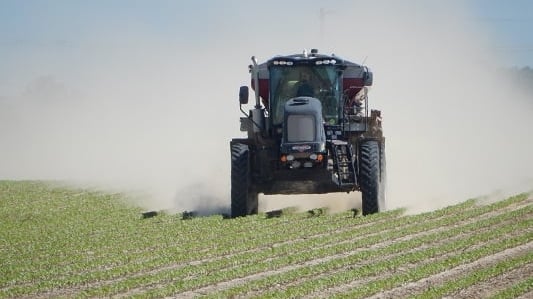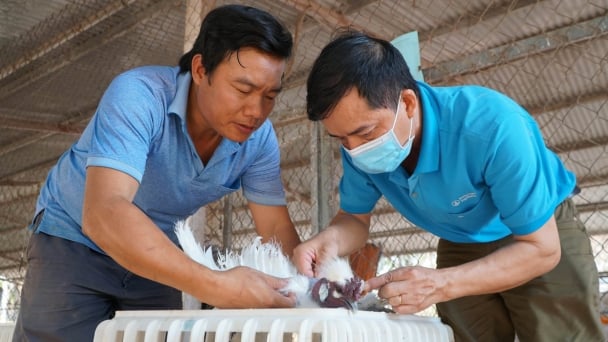May 15, 2025 | 02:03 GMT +7
May 15, 2025 | 02:03 GMT +7
Hotline: 0913.378.918
May 15, 2025 | 02:03 GMT +7
Hotline: 0913.378.918

Many enterprises exporting agricultural products to China choose to clear customs by sea, especially at the end of December 2021.
Mr. Dang Phuc Nguyen, General-Secretary of the Vietnam Fruit and Vegetable Association, said that if Vietnamese enterprises and units can export agricultural products to China by sea, it will reduce the pressure on the North border gates. However, at present, exporting by sea is also facing many difficulties.
Firstly, currently, the number of ships is not stable or delayed. Second, empty refrigerated containers are in short supply. Third, China has rigorous Covid-19 quarantine. That leads to slow customs clearance. Each day, the Chinese side only clears five containers while Vietnam's container quantity is up to hundreds.
"With the shortage of ships, the lack of containers along with the Zero Covid policy on the Chinese side, exporting agricultural products to the world's most populous market is facing many difficulties, both by road or the sea," Mr. Dang Phuc Nguyen raised the issue.
In addition, Chinese border gates are about to stop operating so that drivers, customs officers, goods loading and unloading staffs... can return to their hometowns, carry out medical isolation and take a Tet holiday.
"Enterprises should limit bringing agricultural products to the border gates at the moment because if the goods are stuck at the border gate during the Lunar New Year, it will be damaged. It is recommended to wait for about 2-3 weeks after Tet, then redefine the situation and requirements of the Chinese market to make an exporting specific plan," General Secretary of the Vietnam Fruit and Vegetable Association made a recommendation.
Mr. Nguyen also said that, after the Lunar New Year, State management agencies should work with shipping units and shipping lines to arrange refrigerated containers to serve the export of enterprises' goods.
Mr. Hoang Hong Giang, Deputy Director of the Vietnam Maritime Administration (Ministry of Transport), affirmed that two main modes do the transport of agricultural products and fruits from Vietnam to China: Sea freight for the northern Chinese market (long-distance route) and road transport for the southern Chinese market (short route, near the land border of Vietnam). However, it is still difficult to change the transport mode of agricultural products from land to sea.
The management agency will coordinate with the Vietnam Association of Logistics Service Enterprises to work with agricultural product import-export businesses, small and medium business owners to create a source of goods large enough to sign long-term transport contracts with shipping lines.
"The Vietnam Maritime Administration also coordinates and works with the Ministry of Agriculture and Rural Development, associations, and some local shippers to accurately identify difficulties, provide the right solutions, and successfully handle the problems. The process of moving agricultural products for export to China through seaports by sea requires the companionship of the General Department of Customs and related ministries and agencies to achieve the highest efficiency," shared Mr. Hoang Hong Giang.
On January 10, the Department of Agricultural Product Processing & Market Development - Ministry of Agriculture and Rural Development sent an official dispatch, proposing coordination to remove difficulties for vegetables and fruits.
First, request the Department of Agriculture and Rural Development of the provinces, cities, and the Department to request connection of information about enterprises, fruit and vegetable processing establishments in the area; also, advise the People's Committees of provinces and cities to attract businesses and associations to research and invest in building logistics clusters of agricultural products (preliminary processing, processing, cold storage system) associated with the above raw material areas.
Secondly, it is suggested that the Vietnam Fruit and Vegetable Association actively coordinates with local fruit and vegetable associations and related agencies to plan the preliminary processing, processing, preservation, and consumption of vegetables and fruits according to each locality by seasonality with the characteristics of each fruit and vegetable product has local advantages.
Third, it is suggested that the Association of Vietnam Retailers pay attention and coordinate with relevant agencies of the Ministry of Agriculture and Rural Development and the Ministry of Industry and Trade to implement programs to connect domestic agricultural product consumption effectively, the program "Vietnamese people give priority to using Vietnamese products" between businesses, cooperatives, farmers, fruit and vegetable purchasing and processing establishments, supermarket and distribution systems.

Enterprises currently face many difficulties exporting agricultural products, both by land and sea.
Mr. Ngo Xuan Nam, Deputy Director of Viet Nam Sanitary and Phytosanitary Notification Authority and Enquiry Point ('Vietnam SPS'), said that our country and China are both parties to the Framework Agreement on Comprehensive Economic Cooperation between ASEAN and China. However
This Agreement contains no SPS chapter. Instead, the cooperation mechanism between the two countries is through the Memorandum of Understanding between the Association of Southeast Asian Nations and the Government of the People's Republic of China.
In recent years, China has placed increasing requirements on improving food safety quality for import and export and regulations on animal and plant quarantine.
Regarding animal and plant quarantine, the General Administration of Customs of China sets out a series of regulations such as risk assessment, overseas pre-inspection, risk monitoring (online inspection), port inspection, isolation and quarantine, risk warning, and emergency response are more and more complete.
Recently, China promulgated a new Law on Biosafety. When this law comes into effect, it will provide a unified legal basis for amendments and supplements in the field of animal and plant quarantine.
The congestion of agricultural products at the border gate has happened for more than a month due to China's Covid-19 prevention measures. Export activities of ASEAN trading partners, including Vietnam, have to take more steps, such as requiring sterilization when importing frozen food products and refrigerated foods.
Vietnam SPS recommends that manufacturers and businesses firmly grasp and strictly comply with regulations and instructions related to food safety, disease safety, regulations on traceability, growing area codes, packaging/labeling…; Update and adequately understand the market rules to organize production following market requirements.
Vietnam SPS also recommends that the management agencies review mechanisms and policies; Planning production areas following market requirements; forecasting and market orientation; Improving staff capacity, strengthening facilities; Developing periodic inspection and monitoring programs.
According to the Plant Protection Department, the current congestion is a problem related to the measures to prevent the Covid-19 epidemic due to China's application of the "Zero Covid" policy and not related to the plant quarantine or quality agricultural products.
Mr. Hoang Trung, Director of the Plant Protection Department, emphasized that the affiliated units, especially the plant quarantine agency, will arrange fully human resources and best facilities on duty even after hours and holidays to ensure always done quickly and conveniently for agricultural export products. Also, the Department will support and create conditions for enterprises to put them into storage in warehouses for congested goods at the border gate.
Translated by Ha Phuc

(VAN) Vietnam's draft amendment to Decree No. 156 proposes a mechanism for medicinal herb farming under forest canopies, linking economic development to population retention and the sustainable protection and development of forests.

(VAN) In reality, many craft village models combined with tourism in Son La have proven effective, bringing significant economic benefits to rural communities.

(VAN) The international conference titled Carbon Market: International experiences and recommendations for Vietnam was successfully held recently in Ho Chi Minh City.

(VAN) According to the Project on rearranging provincial and communal administrative units, in 2025, the country will have 34 provinces/cities, 3,321 communes, wards, and special zones, and no district-level organization.

(VAN) The vice president of fertilizer with Stone X Group says the Trump administration’s tariffs are impacting fertilizer markets.

(VAN) Resolution 57 offers Vietnam a significant opportunity to narrow the global genetic technology disparity and convert its extensive genetic resources into commercial advantages.

(VAN) The Ministry of Agriculture and Environment will prioritize the implementation of five core and breakthrough solutions in science and technology, in addition to the seven groups of tasks identified in Decision No. 503.